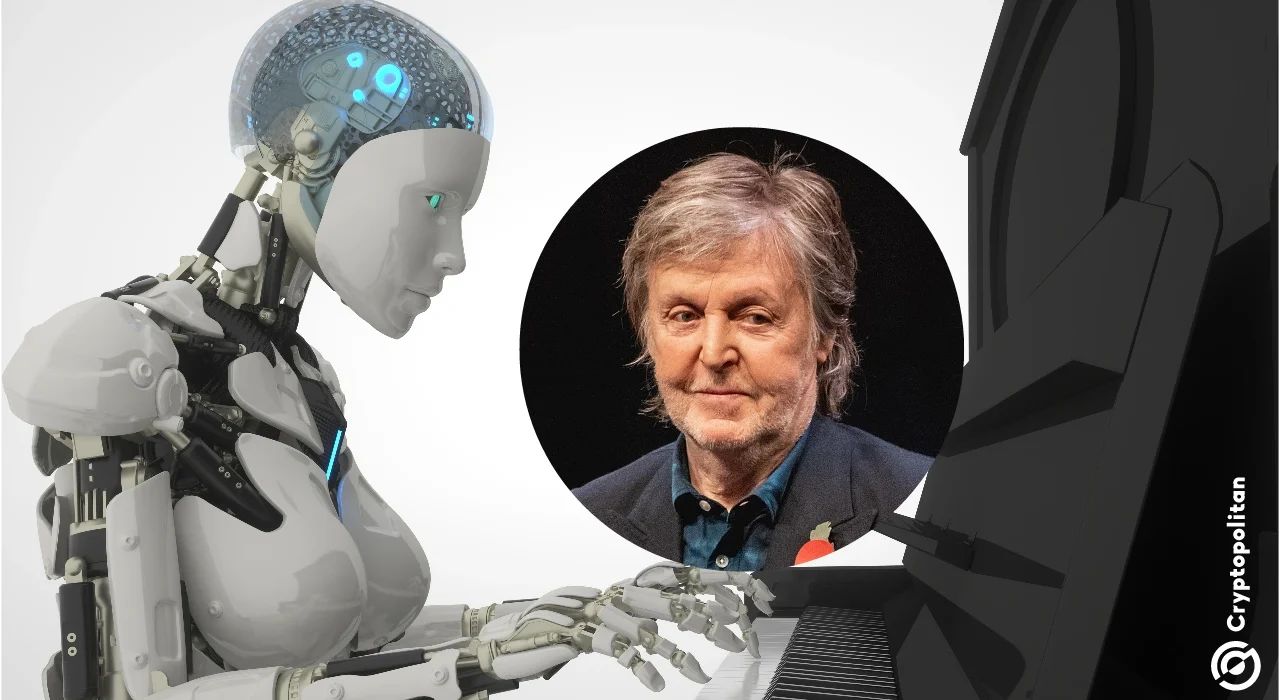Musician Sir Paul McCartney has advised that AI could “rip off” artists if a proposed revamp of the copyright regulations by the UK government goes ahead. This comes as the use of copyrighted material to train AI models has become the subject of a recently launched government consultation.
The UK government is considering an overhaul of a law that will enable AI developers to use content by creators to train their models unless the rights holders choose to opt-out, according to the BBC. The matter is of concern not only to musicians but writers too who have taken AI companies to task over using their copyrighted materials to train AI models.
AI rewards the wrong people
According to the musician, the proposed overhaul of the regulations could take away incentives for writers and artists, which will subsequently result in “loss of creativity.”
McCartney, who is one of the two surviving members of the Beatles told the BBC that young artists and writers will be at the losing end if other people use their original work and benefit from it.
“You get young guys, girls, coming up, and they write a beautiful song, and they don’t own it, and they don’t have anything to do with it. And anyone who wants can just rip it off,” said McCartney.
“The truth is, the money’s going somewhere… Somebody’s getting paid, so why shouldn’t it be the guy who sat down and wrote Yesterday?”
~ McCartney.
This also comes as there hasn’t been any clarity on whether it is fair or right to use copyrighted material to train the models that are powering generative AI. This subject has sparked debate across the world with some individuals and firms suing AI companies over what they have called unlicensed use of their material.
In 2023, a group of authors took Meta to court on allegations that the social media firm was misusing their books to train AI models, specifically Llama, the large language model that powers its chatbots.
The case took a twist recently with new court papers showing the authors alleged that the social media giant knew they were using pirated versions of copyrighted books to train their AI systems. They further alleged Meta CEO knew about the matter and approved it, according to an article by The Guardian.
On the other hand, some publishers and media outlets have entered into agreements with AI firms to enable them to use their material to train the AI models.
Sir Paul McCartney appealed to the UK government for artists’ protection
In the UK, the government has indicated it will use ongoing consultations that will run until February 25, to explore the key points of the debate. This includes how to enhance trust between the creative and AI sectors. The consultations will also explore ways how creators can license and be remunerated for the use of their material.
The 82-year-old McCartney appealed for protection from the government, asking it to rethink the idea.
“We’re the people, you’re the government. You’re supposed to protect us. That’s your job,” he said.
“So, you know, if you’re putting through a bill, make sure you protect the creative thinkers, the creative artists, or you’re not going to have them.”
~ McCartney
In November 2023, McCartney and Ringo Starr, the other surviving members of the Beatles created a song called Now and Then using AI technology to extract John Lennon’s vocals from a home demo which was recorded in 1977.
The song was billed as the Beatles’ final release, and it drew widespread praise and was nominated for two Grammys and a Brit award.
UK government proposal thinks the decision will empower artists
While the proposals, if passed, are expected to give creators and artists “rights reservations” through the ability to opt out, critics believe it will be difficult for artists to inform all AI developers not to use their material to train their models.
According to the BBC, an alternative proposal for artists to opt in and give permission for their content to be used by AI developers will be put forward in the House of Lords by cross-bench peer Baroness Kidron.
Music industry body UK Music CEO Tom Kiehl said the government’s plans will be counterproductive and endanger the music industry, which is already contributing over £120 billion to the economy.
“Government plans to change copyright law to make it easier for AI firms to use the music of artists, composers, and music companies without their permission put the music industry at a huge risk,” said Kiehl.
“There is no evidence that creatives can effectively ‘opt-out’ of their work from being trained by AI systems and so this apparent concession does not provide any reassurance to those that work in music.”
~ Kiehl
A government spokesperson defended the position, saying they are keen on hearing industry views and will act accordingly.
“That is why we have launched a consultation to ensure the UK copyright framework offers strong protections for artists with regards to AI,” they said.
Culture Secretary Lisa Nandy last year said: “This Government firmly believes that our musicians, writers, artists and other creatives should have the ability to know and control how their content is used by AI firms and be able to seek licensing deals and fair payment.”
“Achieving this, and ensuring legal certainty, will help our creative and AI sectors grow and innovate together in partnership,” Nandy added.
Cryptopolitan Academy: Are You Making These Web3 Resume Mistakes? – Find Out Here
